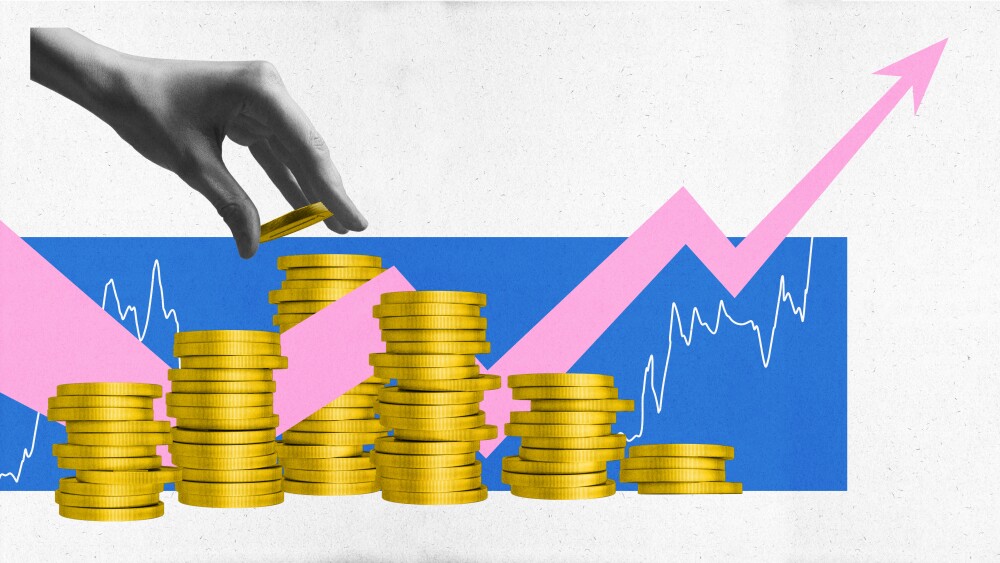The Institute for Clinical and Economic Review flagged five drugs whose prices were raised in 2023 with no evidence to support it. Meanwhile, the makers of these drugs have been reporting double-digit sales growth for many of these products.
$815 million. That’s how much U.S. payers shelled out for five top-selling drugs whose prices were raised without justification, according to the Institute for Clinical and Economic Review. The drug price watchdog flagged Gilead’s Biktarvy, Johnson & Johnson’s Darzalex, Novartis’ Entresto, Exelixis’ Cabometyx and Pfizer’s Xeljanz as the drugs with the highest unsupported drug price increases in 2023.
The annual review calculates drugs that had substantial net price increases in the year prior, specifically flagging those without evidence supporting a new or greater clinical benefit that would justify the change. The analysis includes the top 250 drugs by U.S. sales revenue that had wholesale acquisition cost increases exceeding the consumer price index plus 2%. It also factors in rebates and whether U.S. spending increases were fueled by the net price increase rather than volume increases.
That left the five drugs that had unsupported price increases. Topping the list was Gilead’s Biktarvy, a trio of HIV medications in one fixed dose. The price of treatment rose 5.9%, while the net price increased 3.8%. This led to $359 million in additional spending.
“We continue to see list price increases that are far above the rate of inflation for many of the costliest drugs,” Foluso Agboola, ICER’s vice president of research, said in a statement.
Meanwhile, these companies have been reporting double-digit sales growth for many of these products. Gilead saw a 14% increase to $11.8 billion in total sales of Biktarvy in 2023 compared to the year before. In a year-end earnings report, Gilead said this was due to higher demand and a higher price. Its HIV franchise, which also includes Decovy, Truvada and other therapies, had a 6% overall increase in sales to $18.2 billion for 2023, again chalked up to the higher price and demand. Gilead’s other HIV medicines were not flagged by ICER in the report.
Interestingly, Gilead reported tha Biktarvy’s price was lower in the fourth quarter of that year. The drug clocked a 7% sales increase to $3.1 billion compared to the same period in 2022. The increase was driven by demand but “partially offset by lower average realized price due to channel mix.”
ICER also noted price hikes on five other drugs that may be justified due to new evidence on their clinical benefit. The first four were in oncology—Merck’s cancer juggernaut Keytruda, AstraZeneca’s Imfinzi and Tagrisso and BMS’ Opdivo—and the final one was Amgen’s osteoporosis therapy Prolia. That said, ICER was careful to note that even though these drugs did have new evidence, the level of price hike may not be warranted.
Prolia had a nearly 10% increase in its wholesale acquisition cost for 2023 compared to 2022, leading to $113 million in additional spending. ICER determined the price change to be justified due to new clinical evidence that Prolia showed a greater reduction in fracture risk as compared to competing therapy alendronate (Fosamax). Amgen reported a 12% increase in sales of Prolia for the full year 2023, with $2.73 billion in the U.S. and $4.05 billion worldwide. The increase was attributed to “volume growth and higher net selling price,” according to the company’s full-year earnings report released in February.
ICER also dubbed BMS’ price increase for Opdivo justified given new evidence that came to light over the past year. The drug collected two more indications, which ICER said helped support the price hike. Opdivo is currently approved for melanoma, non-small cell lung cancer and renal cell carcinoma.
A History of Hiking Prices
In 2023, ICER flagged eight drugs for 2022 price hikes that were unjustified. Like this year, Darzalex made the list. Entresto, on the other hand, had a price change that was considered justified, but Prolia found itself on the unjustified side of the board.
Other therapies that ICER thought had raised prices without justification include AbbVie’s Humira and Pfizer’s Ibrance. For 2024, the story could be different for Ibrance. Pfizer posted data on Thursday making the case for a new indication in breast cancer. Ibrance was included in this year’s analysis but did not make the final list. The drug had a 7.9% wholesale acquisition cost increase.
ICER’s Agboola said that since beginning the report in 2019, the number of drugs that make the list each year has been declining.






